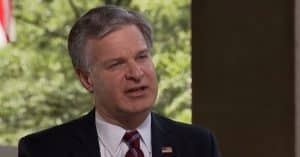Biden Dismisses Rail Board Inspector General Over Workplace Toxicity
In a decisive move, President Joe Biden has terminated Martin Dickman, the U.S. Railroad Retirement Board's inspector general, amid serious allegations of fostering a toxic work environment.
This decision marks a significant action against workplace misconduct within the federal government, contrasting with ongoing allegations against other White House officials that remain unaddressed, as the New York Post reports.
The Council of the Inspectors General on Integrity and Efficiency launched an investigation into Dickman's conduct in January 2023, uncovering a pattern of abusive behavior that dates back to the start of his tenure in 1994. Employees reported instances of inappropriate language, including the use of slurs and demeaning comments, contributing to a hostile work atmosphere.
A Closer Look at the Investigation's Findings
As a result of the investigation's findings, Dickman was placed on administrative leave, with a formal termination scheduled for April 28. This decision reflects the administration's commitment to maintaining a respectful and safe work environment across all levels of government.
While Dickman's dismissal highlights the administration's stance on such issues, it also brings to light similar allegations against other high-profile officials within the Biden administration. Notably, Anthony Bernal, a senior aide to the first lady, and Dr. Rahul Gupta, the administration's drug policy advisor, have faced accusations of misconduct without subsequent investigations or disciplinary action.
Contrasting Responses to Workplace Allegations
Allegations against Bernal involve accusations of bullying and verbal sexual harassment spanning over a decade, with numerous colleagues both current and former expressing concerns about his behavior. Despite these serious claims, the president's chief of staff, Jeff Zients, has publicly defended Bernal, affirming both the president's and the first lady's full confidence in him.
In his own defense, Bernal described the accusations as "unfounded attacks," firmly denying any wrongdoing. This situation highlights the complexities and challenges in addressing workplace misconduct within high-level government positions.
Similar allegations have been directed at Dr. Rahul Gupta, who has been accused of prioritizing personal publicity over the government's efforts to combat the opioid crisis, making unreasonable travel demands, and failing to support aides battling substance use disorders. These accusations, however, have not led to an investigation or any form of disciplinary action, raising questions about consistency and fairness in handling such issues within the administration.
Presidential Stance on Respect in the Workplace
On his first day in office, President Biden set a clear expectation for all political appointees, warning that disrespectful behavior towards colleagues would result in immediate termination. This directive was aimed at fostering a culture of respect and professionalism within the federal government, emphasizing the importance of treating all staff with dignity and fairness.
Zients' comments in defense of Bernal reflected this commitment, highlighting Bernal's supposed dedication to public service and his role as a valued member of the White House team. His statement underscores the administration's challenge in balancing the need for accountability with support for its members facing allegations.
President Biden's action against Dickman, juxtaposed with the ongoing allegations against Bernal and Gupta, underscores a complex landscape of addressing and acting on workplace misconduct within the highest levels of government. It raises important questions about the criteria and processes for investigation and accountability, particularly in politically sensitive positions.
Examining the Broader Implications
This series of events sheds light on the broader implications for workplace culture within the government, the mechanisms for accountability, and the standards applied to different individuals in positions of power. The administration's actions and responses to these situations are closely watched by the public and will likely influence perceptions of its commitment to ethical governance and equality before the law.
The dismissal of Martin Dickman serves as a precedent in the administration's efforts to combat toxic workplace environments, yet it also highlights the challenges in maintaining consistency and fairness when similar allegations emerge against other officials.
In conclusion, the firing of the U.S. Railroad Retirement Board Inspector General Martin Dickman by President Biden, due to the creation of a toxic work environment, contrasts with the lack of investigation into allegations against other White House officials. This situation underscores the administration's commitment to addressing workplace misconduct, while also spotlighting the need for a consistent and transparent approach to all allegations, regardless of the individual's position or political standing.




